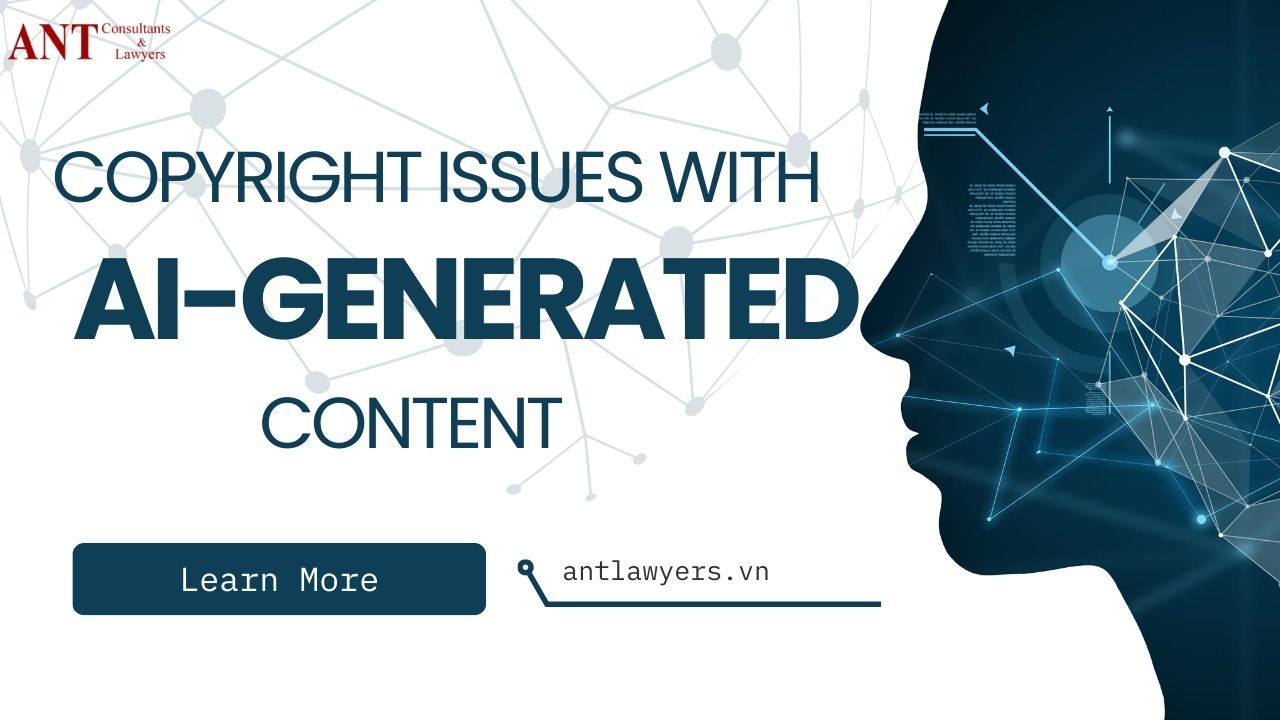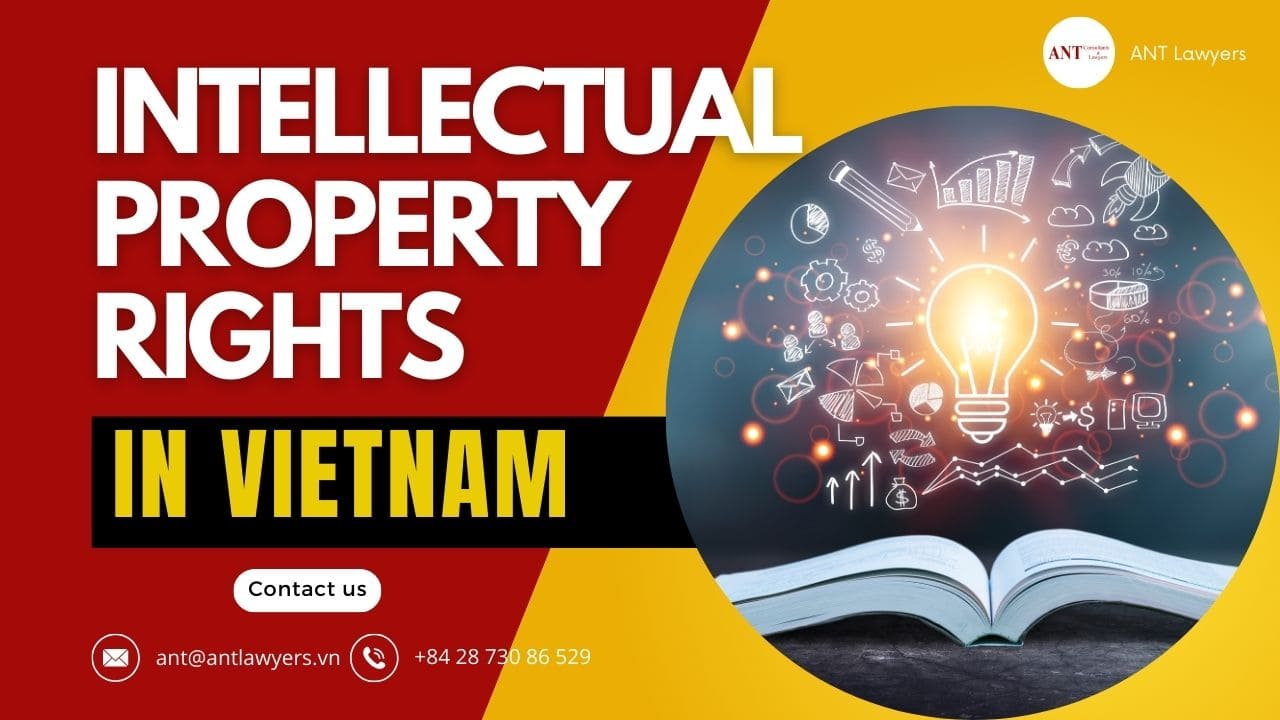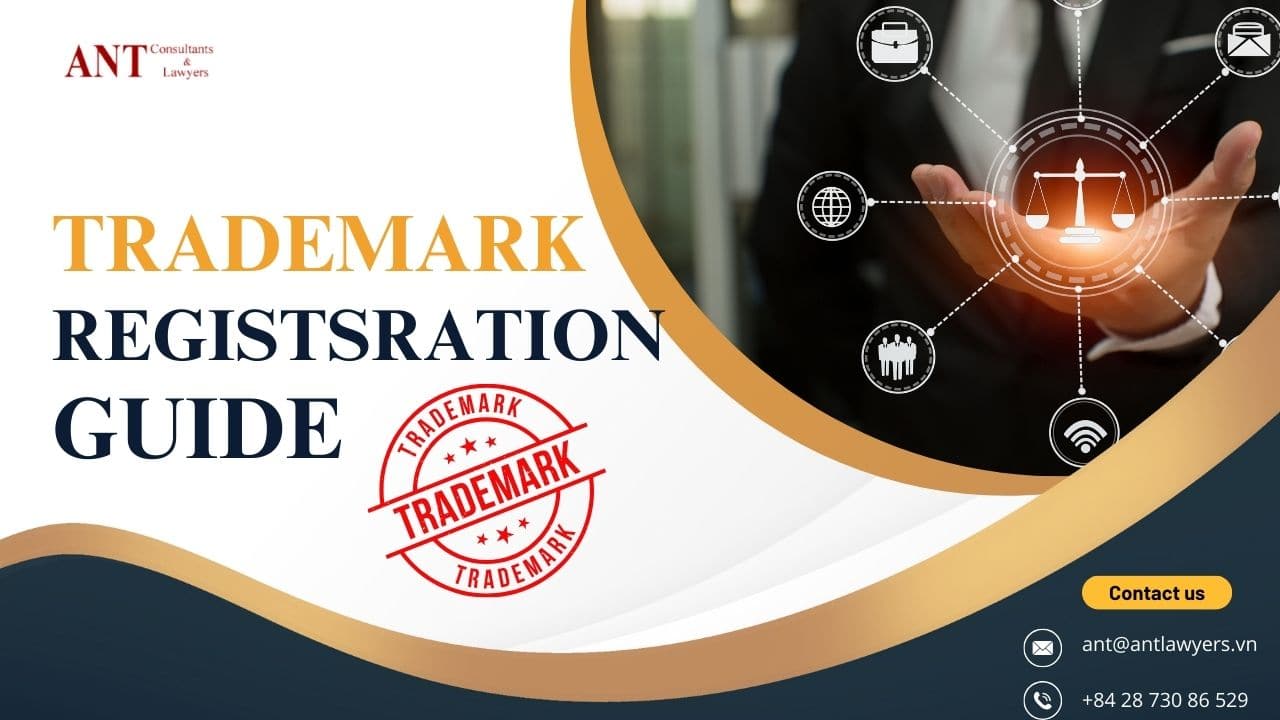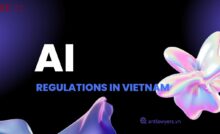Copyright Issues with AI-Generated Content: 7 Key Insights for Foreign Businesses in Vietnam


The rapid advancement of artificial intelligence (AI) has revolutionized content creation across various industries, from marketing and design to software development and automation. While AI-generated content offers efficiency and innovation, it also raises important legal considerations. Specifically, copyright issues with AI-generated content have become a focal point for businesses worldwide, especially for foreign companies outsourcing work to Vietnam’s IT and creative sectors.
Vietnam has emerged as a leading destination for outsourced software development, content production, and AI-driven services. As a result, foreign businesses relying on Vietnam-based suppliers and contractors need to understand how AI-generated content is treated under intellectual property laws to protect their business interests, prevent disputes, and ensure compliance.
This article explores seven key aspects of copyright issues with AI-generated content in Vietnam, offering insights on how foreign companies can secure their intellectual assets, mitigate risks, and adapt to an evolving legal framework.
Why Copyright Issues with AI-Generated Content Matter in Vietnam
Vietnam has rapidly become a global hub for IT and digital services, with many foreign companies outsourcing software development, creative content, and AI-driven solutions to local contractors. This trend presents exciting business opportunities, but it also requires companies to be mindful of intellectual property protection.
AI is now widely used to generate content, write code, create visual designs, and produce marketing materials. However, without clear ownership rights, businesses may face challenges in asserting control over AI-generated works. This is particularly relevant for companies that:
- Outsource AI-powered content creation to Vietnamese service providers.
- Develop AI-based products in collaboration with local partners.
- Use AI-generated reports, branding materials, or automation tools in their business operations.
By addressing copyright issues with AI-generated content, businesses can strengthen their IP protection, avoid potential disputes, and ensure their AI-driven innovations remain exclusive assets.
Who Owns AI-Generated Content?
Defining Ownership in an AI-Powered World
One of the most significant copyright issues with AI-generated content is determining who holds the rights to AI-created works. Traditionally, copyright laws recognize human authorship, granting protection to creators who produce original works. However, when an AI system generates text, images, or code, the question arises: does the AI user, developer, or another entity own the rights?
Vietnam’s Perspective on AI and Copyright Ownership
Vietnam takes a human-centric approach to copyright protection, meaning that content must be created by a human to be eligible for legal protection. If AI fully autonomously produces a work, its copyright status may be uncertain.
Implications for Foreign Businesses
- AI-generated content outsourced to Vietnamese suppliers may require contractual agreements to clarify ownership.
- Companies using AI tools should ensure human oversight in content creation to establish stronger copyright claims.
- Trademarks, contracts, and licensing agreements can provide additional protection for AI-generated assets.
By taking proactive steps, businesses can secure their rights over AI-generated content and prevent unauthorized use or duplication.
The Role of AI Training Data in Copyright Compliance
Why AI Training Data Matters
AI models require large datasets for training, often incorporating text, images, music, and code from various sources. However, if an AI system is trained on copyrighted materials without proper authorization, it may inadvertently generate content that resembles or includes protected works.
Managing Copyright Risks in Vietnam
Foreign companies outsourcing AI-related projects to Vietnam should be mindful of how their Vietnam-based contractors and suppliers source training data. Key considerations include:
- Verifying whether AI models have been trained on legally obtained data to avoid unintended copyright issues.
- Using AI tools with transparent licensing agreements to ensure compliance.
- Securing appropriate rights and permissions for AI-generated materials before commercial use.
By focusing on ethical AI training practices, businesses can enhance legal compliance and minimize potential risks.
Strengthening IP Protection for AI-Generated Content
Beyond Copyright: Additional Strategies for Protection
While copyright issues with AI-generated content are important, companies can also explore alternative ways to protect their AI-generated assets:
- Trademarks: AI-generated brand elements, such as logos or product names, can be protected under trademark law.
- Trade Secrets: Unique AI-driven business models, algorithms, and automated reports can be safeguarded as confidential trade secrets.
- Contracts and Agreements: Establishing clear ownership terms in outsourcing and supplier agreements ensures businesses retain control over AI-created works.
Taking a comprehensive approach to intellectual property can help foreign companies maximize their protection in Vietnam.
Resolving Copyright Disputes Involving AI-Generated Content
How Copyright Disputes Are Handled in Vietnam
If an AI-generated work is copied, misused, or disputed, foreign businesses have several options for resolution:
- Administrative Procedures – Filing complaints with Vietnamese IP authorities.
- Civil Litigation – Seeking legal remedies through court proceedings.
- Alternative Dispute Resolution (ADR) – Using mediation or arbitration for faster, cost-effective solutions.
Best Practices for Avoiding Disputes
- Ensure human involvement in AI-generated content creation to strengthen legal claims.
- Use contracts to define ownership of AI-created works when working with Vietnamese contractors.
- Monitor unauthorized use of AI-generated content and take necessary action to protect assets.
By implementing preventive measures, businesses can minimize the likelihood of disputes and maintain better control over their intellectual property.
Compliance and Future Developments in AI Copyright Law
How Vietnam is Evolving in AI Copyright Regulation
Vietnam is actively exploring ways to refine its legal framework to accommodate advancements in AI. Future developments may include:
- New guidelines on AI-generated works and copyright eligibility.
- Clearer licensing models for AI training data to ensure responsible AI development.
- Transparency requirements for AI-generated content in commercial applications.
Foreign companies should stay informed about these regulatory changes to ensure compliance and maximize their IP protection.
Key Takeaways for Foreign Companies Using AI in Vietnam
- Copyright issues with AI-generated content are an essential consideration for businesses outsourcing work to Vietnam.
- AI-generated works may require human involvement to qualify for copyright protection.
- Foreign companies should verify how AI training data is sourced to avoid potential copyright concerns.
- Trademarks, trade secrets, and contracts offer valuable additional protection for AI-generated business assets.
- Vietnam’s legal framework is evolving, and businesses should proactively adapt to new regulations.
By understanding copyright issues with AI-generated content, foreign businesses can make informed decisions, protect their intellectual property, and navigate Vietnam’s dynamic business environment with confidence.
Final Thoughts
Vietnam is a thriving hub for AI innovation, digital outsourcing, and creative industries. As businesses increasingly rely on AI-driven solutions, it is crucial to address copyright issues with AI-generated content to safeguard intellectual assets and maintain compliance.
By taking proactive legal steps, foreign companies can leverage AI’s potential, build stronger collaborations with Vietnamese partners, and ensure their digital assets remain secure.
About ANT Lawyers, a Law Firm in Vietnam
We help clients overcome cultural barriers and achieve their strategic and financial outcomes, while ensuring the best interest rate protection, risk mitigation and regulatory compliance. ANT lawyers has lawyers in Ho Chi Minh city, Hanoi, and Danang, and will help customers in doing business in Vietnam.
How ANT Lawyers Could Help Your Business?
You could reach ANT Lawyers in Vietnam for advice via email ant@antlawyers.vn or call our office at (+84) 24 730 86 529
Recent Posts
5 Crucial Facts About ESG Laws in Vietnam That Could Save Your Business and Reputation
The Business World Is Changing Fast Rules are shifting. Expectations are rising. Eyes are watching. …
7 Powerful Reasons Why ESG Compliance in Vietnam Will Win You Trust, Growth, and Global Clients
Trust matters. Today, more than ever. Across industries, many companies are now being asked. directly…
7 Bold Reasons Why Tokenization in Vietnam Could Transform Your Future
Change is coming. Quietly. Digitally. Rapidly. Let’s imagine the situation, which assets are no longer…
Vietnam P2P Lending: 5 Bold Reasons Why Decree 94/2025 Could Empower Millions or Backfire?
A New Financial Chapter Begins in Vietnam One person lends. Another borrows. It’s that simple.…
5 Essential Lessons from Risk Management in Digital Assets in Vietnam: Protecting Trust in a Digital World
Trust Is the Real Currency Money can be lost. Tokens can vanish. Platforms can crash.…
5 Powerful Reasons Why Vietnam Digital Asset Sandbox Is a Bold and Hopeful Move for Innovation
Change is fast. Rules are slow. But innovation can’t wait. As digital assets grow, so…



